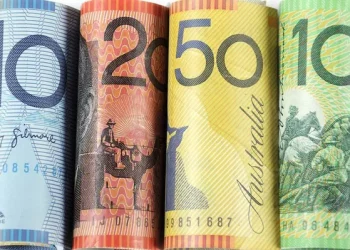Foreign exchange trading involves converting one currency into another. For traders and investors, understanding currency exchange rates is crucial. In this article, we will explore how to convert 6000 Chinese Yuan (CNY) into Myanmar Kyat (MMK). We will also discuss factors influencing exchange rates, how to perform the conversion, and practical tips for currency trading.
Understanding Currency Conversion
Currency conversion is the process of exchanging one currency for another. It is necessary for international trade, travel, and investment. Each currency has its own value, which fluctuates based on various economic factors.
What is Yuan?
The Yuan (CNY) is the official currency of China. It is one of the most traded currencies in the world. The value of the Yuan can be affected by China’s economic performance, trade balance, and government policies.
What is Kyat?
The Kyat (MMK) is the official currency of Myanmar. It is less widely traded compared to major currencies like the Yuan or the US Dollar. The value of the Kyat can be influenced by Myanmar’s economic stability, political situation, and foreign investment.
Current Exchange Rate
To find out how much 6000 Yuan is in MMK, we need the current exchange rate. Exchange rates can change frequently due to market conditions. For example, if the exchange rate is 1 CNY = 200 MMK, then:
6000CNY×200MMK/CNY=1,200,000MMK
This means that 6000 Yuan would equal 1,200,000 Kyat at this exchange rate.
Where to Find Current Exchange Rates
There are several sources to find current exchange rates:
Banks: Many banks provide up-to-date exchange rates.
Currency Exchange Services: These services often list current rates for buying and selling currencies.
Financial News Websites: Websites like Bloomberg or Reuters frequently update exchange rates.
Mobile Apps: Apps like XE Currency or OANDA provide real-time exchange rates.
Factors Affecting Exchange Rates
Several factors can influence the exchange rate between the Yuan and the Kyat. Understanding these factors can help traders make informed decisions.
Economic Indicators
Economic indicators are statistics that provide insight into a country’s economic performance. Key indicators include:
Gross Domestic Product (GDP): A higher GDP indicates a stronger economy and can increase the value of the currency.
Inflation Rates: High inflation can decrease the currency’s value.
Interest Rates: Higher interest rates offer lenders a higher return, which can attract foreign capital and increase currency value.
Political Stability
Political stability can significantly impact a country’s currency value. A stable government can encourage foreign investment, boosting demand for the currency. Conversely, political turmoil can lead to decreased confidence and lower currency value.
Market Sentiment
Market sentiment refers to the overall attitude of investors toward a particular currency. If traders believe that the Yuan will strengthen, they may buy more Yuan, increasing its value. Similarly, if there are concerns about the Kyat, traders may sell it, leading to a decrease in its value.
Supply and Demand
Like any other asset, the value of a currency is influenced by supply and demand. If more people want to buy Yuan than sell it, its value will increase. Conversely, if more people want to sell the Yuan, its value will decrease.
How to Convert Currency
Converting currency can be done in several ways. Below are the most common methods:
1. Online Currency Converters
Many websites offer online currency converters. Simply input the amount you wish to convert and the currencies involved. The converter will provide the equivalent value based on the current exchange rate.
2. Banks and Financial Institutions
You can also visit a bank or financial institution to convert currency. Banks typically provide reliable exchange rates, although they may charge a fee for the service.
3. Currency Exchange Kiosks
Currency exchange kiosks are available in airports and tourist areas. They offer convenience but often have higher fees and less favorable exchange rates than banks.
4. Mobile Apps
Currency converter apps allow users to convert currencies on the go. These apps often provide real-time exchange rates and historical data.
Practical Tips for Currency Trading
If you’re considering trading currencies, here are some practical tips:
1. Stay Informed
Keep up with news related to the currencies you are trading. Economic reports, political events, and market trends can affect exchange rates.
2. Use Stop-Loss Orders
A stop-loss order helps limit potential losses by automatically selling a currency when it reaches a certain price. This strategy is essential in volatile markets.
3. Diversify Your Portfolio
Diversification involves spreading investments across various currencies. This strategy can reduce risk and increase potential returns.
4. Practice with a Demo Account
Many trading platforms offer demo accounts where you can practice trading without risking real money. This is a great way to learn the market and test strategies.
5. Understand Leverage
Leverage allows traders to control larger positions with a smaller amount of capital. While it can increase profits, it also increases the risk of significant losses.
Conclusion
In conclusion, converting 6000 Yuan to MMK involves understanding current exchange rates and various influencing factors. By keeping informed and using the right tools, traders can make better decisions in the foreign exchange market. Whether you’re trading for profit or converting currency for travel, understanding the dynamics of currency exchange is essential.
As we’ve seen, currency values fluctuate based on economic indicators, political stability, and market sentiment. By considering these factors and using effective trading strategies, you can navigate the complexities of the foreign exchange market with greater confidence.
Related Topics:

























